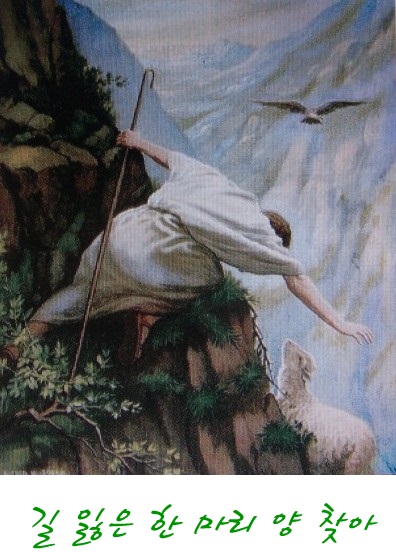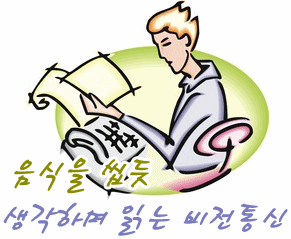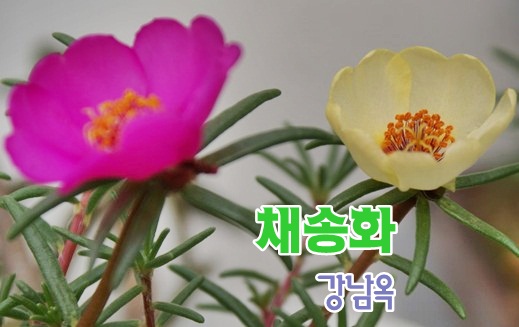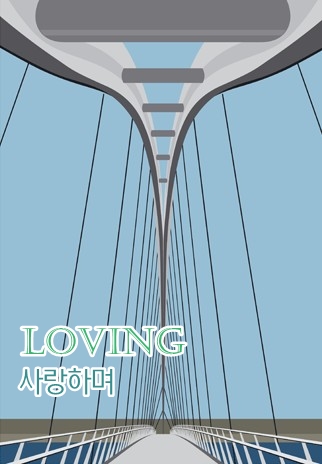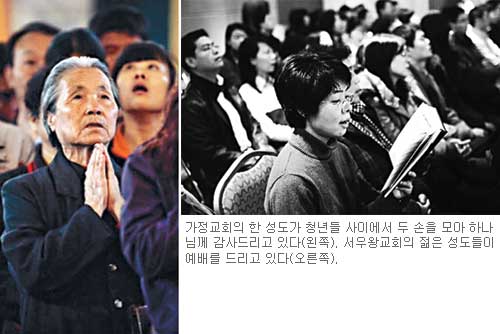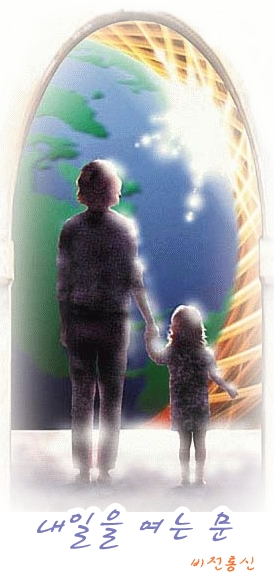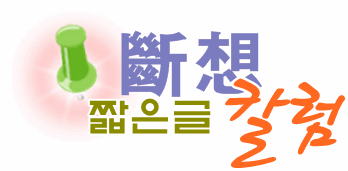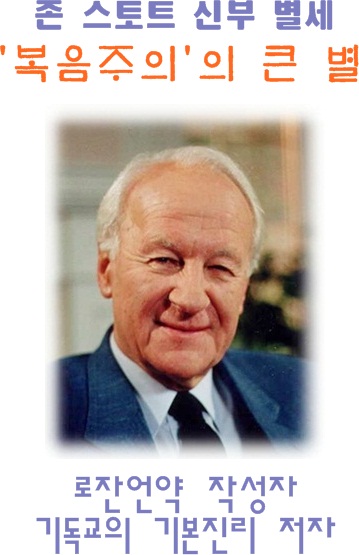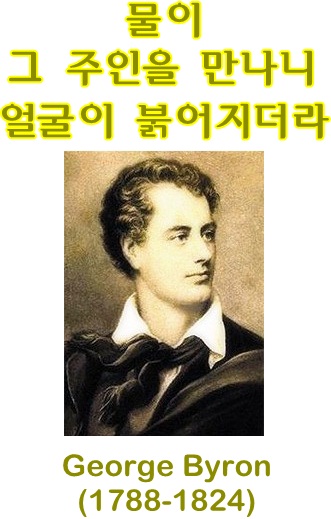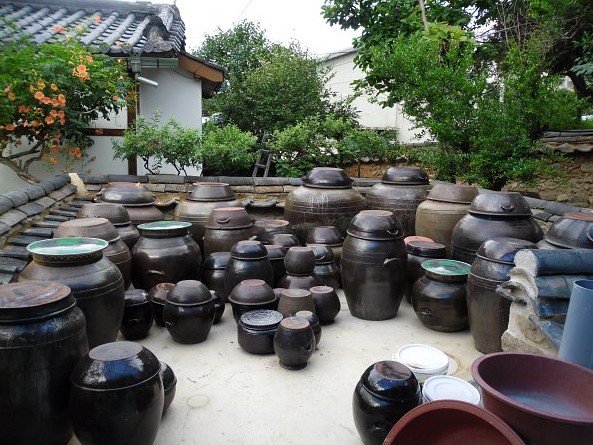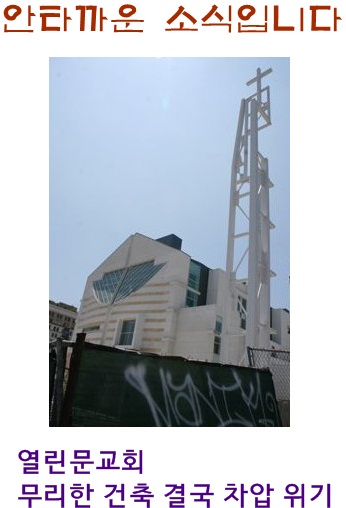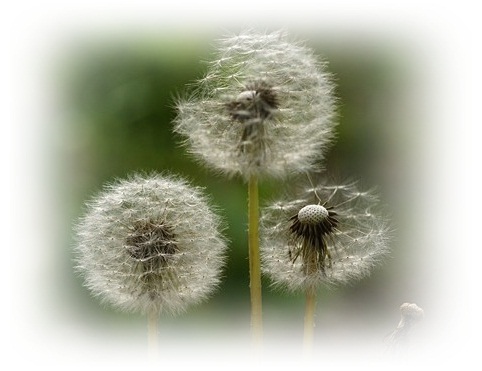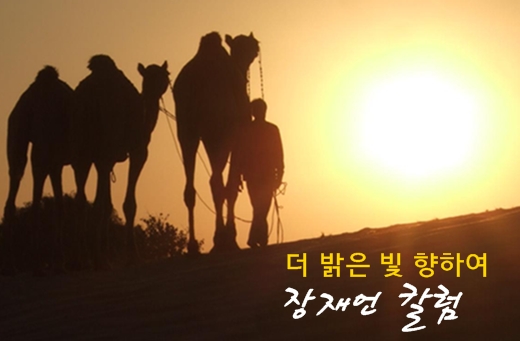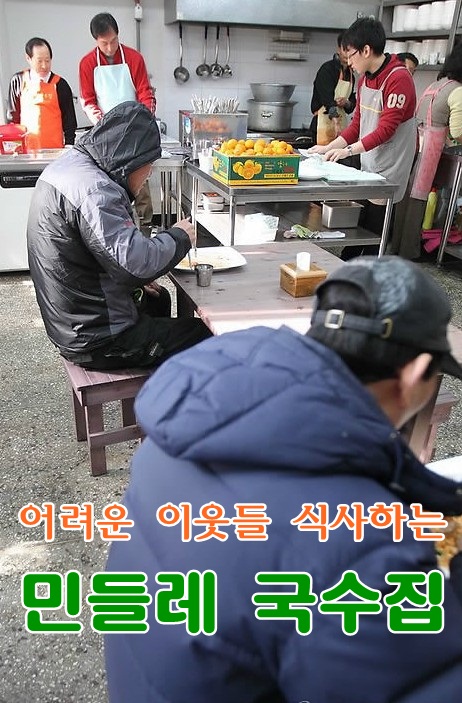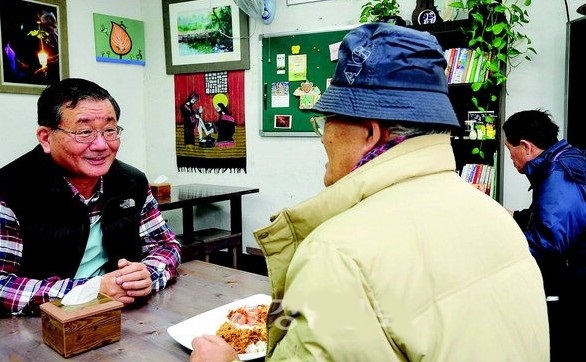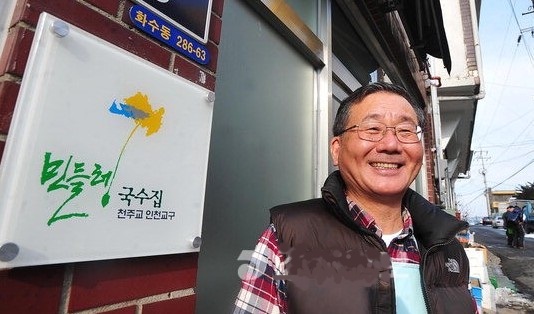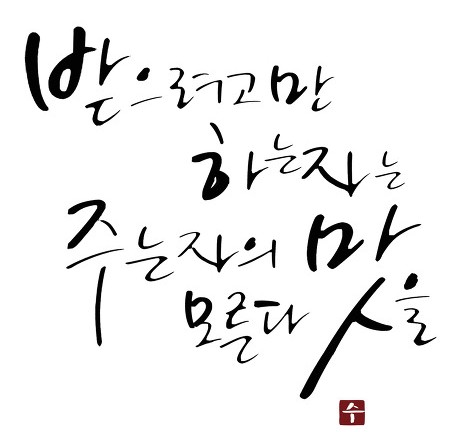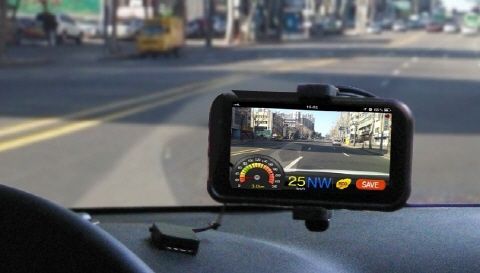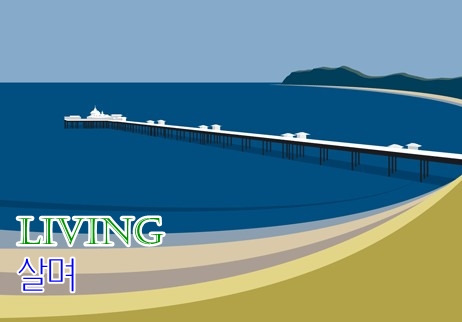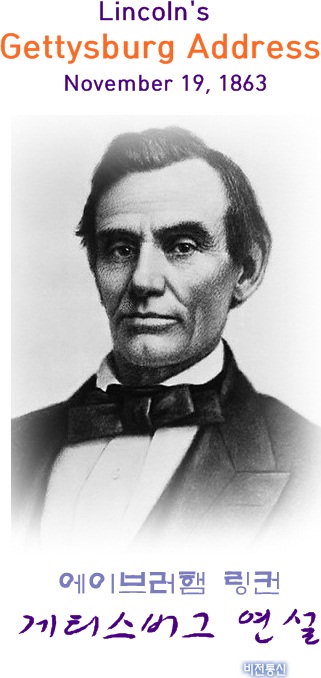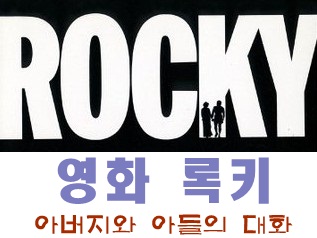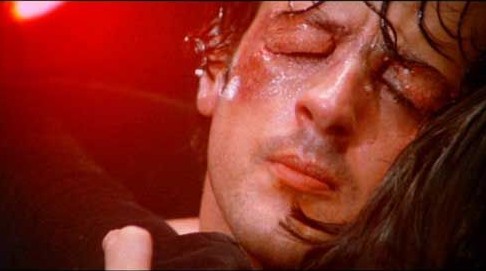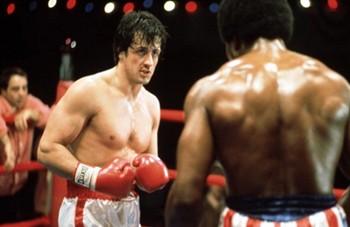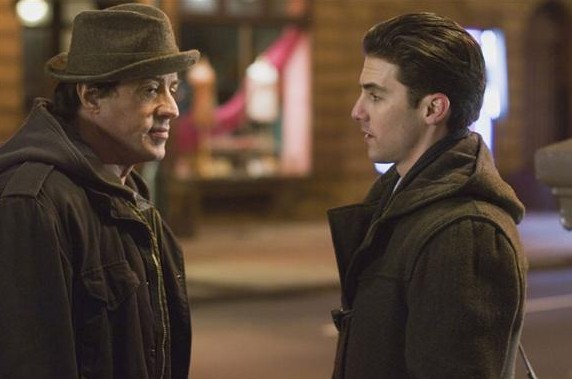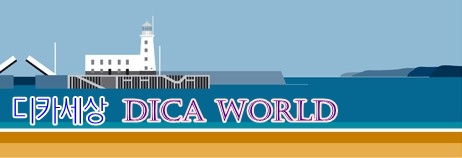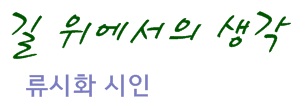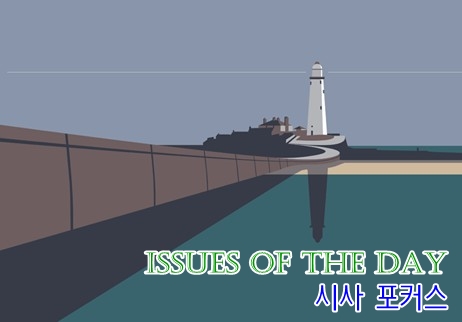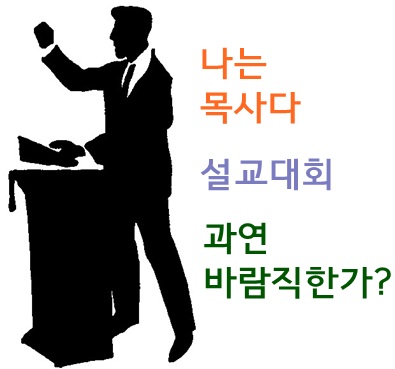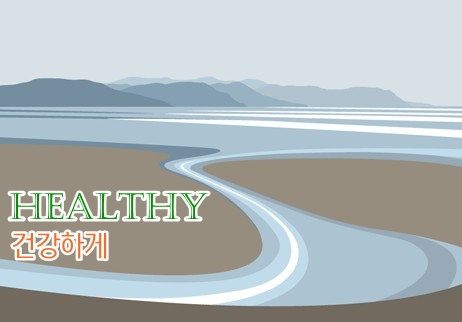|

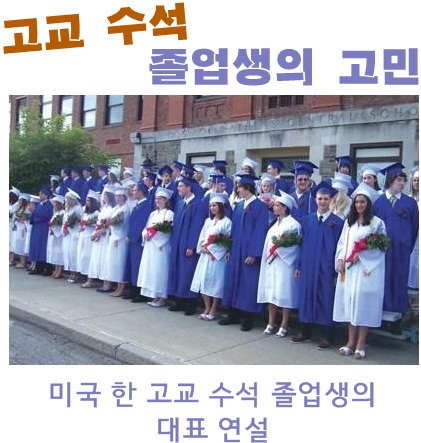
여름은 미국의 캠퍼스가 긴 방학을 즐기는
기간입니다. 뿐
아니라 여름은
미국 각급 학교의 졸업식이 있는 계절이기도 합니다.
여기..
6월 25일, 미국의 Coxsackie-Athens
고등학교 졸업식에서 수석 졸업생인 Erica
Goldson양의 연설 전문을 소개합니다.
미국의 젊은 이가 무엇을 생각하며 고등학교를
졸업하고 있는지 살펴보십시다. 그들이 바로 내일의
미국을 이끌어갈 일꾼들입니다.
번역한 내용만이라도 꼭
읽어보시기 바랍니다.(언)

Erica Goldson의
연설 전문 번역
예전에 선(禪)을 공부하는 수도자가 있었는데,
하루는 스승을 찾아가 이렇게 물었다고 합니다:
“제가 지금부터 열심히 노력하면 도를 깨우치는 데
얼마나 걸리겠습니까?” 스승은 곰곰이 생각한 후,
“10년 정도?”라고 대답했습니다.
제자가 다시
물었습니다: “제가 빨리 깨우침을 얻기 위해 진짜
많이 노력하면 얼마나 걸릴까요?” 그러자 스승은
“그렇다면 20년 정도 걸리겠군”이라고
대답했습니다.
제자가 또 물었습니다:
“제가 진짜,
진짜, 무진장 노력하면 어떨까요?” 스승은 이
질문에 대해 “30년”이라고 묵묵히 대답했습니다.
실망한 제자가 다시 물었습니다:
“이해를
못하겠습니다. 열심히 노력할수록 오래 걸린다니요?
왜 그런 말씀을…”.
그러자 스승이 말했습니다:
“하나의 목표를 세워놓고 정진하면, 하나의 길만
바라보며 걸어야 하기 때문이니라…” (즉, 목표에
연연할 수록 목표에 도달하는 과정을 고찰하지 못하게
된다는 의미)
저도 미국의 교육 시스템을 직접 체험하면서 비슷한
딜레마에 부딪혔습니다. 우리 학생들은 시험이니,
석차니, 모두들 어떤 목표를 세워 놓고 학습에
임합니다. 하지만 이런 방식으로는 진정한 배움을
얻을 수 없습니다. 단지 목표 달성만을 위해 수단과
방법을 가리지 않고 노력할 뿐이니까요.
아마 이런 생각 하시는 분들도 있을 겁니다:
“아니, 시험도 무사히 통과하고 졸업생 대표까지
맡게 되었으면 뭔가 배웠을 것 아니냐?”.
네,
뭔가 배우긴 했겠죠. 하지만 잠재력을 발휘했다고 할
수는 없습니다. 유명한 사람들의 이름, 지명,
역사적인 사건의 발생일자 같은 것들을 외우고,
시험이 끝나면 또 다음 시험을 준비하기 위해 머리
속에 입력된 지식을 지우고…
학교 역시 제 역할을
못하고 있습니다. 지금 대부분의 학생들은 “최대한
빨리 이 곳에서 벗어나자”라는 것을 목표로 삼고
있는 실정입니다.
저는 이제 그 목표의 달성을 눈앞에 두고 있습니다.
이번에 졸업하거든요. 게다가 수석이라는 영예까지
얻었으니, 즐거워해야 마땅할 것입니다. 하지만 지금
돌이켜보면, 제가 동기생들보다 더 똑똑하다고 결코
얘기할 수 없을 것 같습니다.
저는 그저 시스템이
요구하는 것들을 잘 해냈을 뿐입니다. 그리고 지금,
학교의 세뇌 프로그램을 충실하게 이행했다는 공로로
이 자리에 서 있습니다. 이걸 자랑스러워 해야 하는
것입니까? 이제 가을이 오면 저는 다음 단계로
넘어가야 합니다. 제가 직장에 들어가서도 일을 잘
할 수 있다는 증서(대학 졸업장)를 따내기 위해
말입니다.
하지만 저는 일꾼이기 이전에 하나의
인간, 사고하는 인간, 그리고 모험을 하고 싶은
인간입니다. 일꾼이라는 것은 반복적인 일을 수행하는
사람을 일컫습니다.
시스템이 준비해 놓은 체제에서
노예처럼 일하는 사람 말입니다. 저는 이 노예들
중에서도 최고라는 사실을 인정받았습니다. 저는
시스템에서 요구하는 일들을 아주 잘 해냈습니다.
수업시간에 경청하지 않고 노트에 그림 연습을 했던
동기생들은 나중에 위대한 화가가 될 지도 모르지만,
수업시간에 열심히 필기를 한 저는 어느 누구보다
시험을 잘 치는 사람이 되었습니다.
방과 후 자신이
읽고 싶은 책들을 읽느라 바빴던 동기생들은 다음 날
숙제를 해오지 못해 혼났지만, 저는 한 번도 숙제를
빼먹은 적이 없습니다.
다른 친구들이 작곡과 작사에
열중하는 동안 저는 학과 점수를 조금이라도 더 따기
위한 특별활동까지 마다하지 않았습니다. 굳이 그럴
필요까지도 없었는데 말이죠.
그래서 지금은 이런
생각이 듭니다. 내가 왜 수석이 되기 위해 그리도
발버둥을 쳤을까? 네, 물론 노력에 대한 정당한
대가이긴 합니다만, 이게 무슨 의미가 있는 것일까…
제가 고등교육을 마치고 나면 과연 성공할 수
있을지, 아니면 영원히 헤매게 될 지, 잘
모르겠습니다. 제 인생을 앞으로 어떻게 설계해야 할
지 전혀 모르겠습니다. 특별한 관심분야도 없어요.
저는 학교에서 배운 모든 분야에서 남보다 앞서
나갔습니다. 하지만 그 분야를 배우기 위해서가
아니라, 남들보다 더 좋은 점수를 받기 위해
매달렸던 것입니다.
솔직히 말해서… 저는 지금
두렵습니다.
교육학자인 John Taylor Gatto씨는
이렇게 얘기했습니다:
“수업시간, 교과목, 시험
같은 것들을 보다 덜 엄격하게 관리하고, 학생들에게
뛰어난 스승들을 붙여 주고, 학생들에게 자율을
허용하고 때로는 모험도 필요하다는 사실을 가르치면
젊음의 특권이라 할 수 있는 호기심, 모험심,
활력을 얼마든지 이끌어 낼 수 있다. 그런데 그렇게
하지 않고 있다는 게 문제다”.
시스템은 우리
학생들이 모두 똑같아지기를 요구하고 있습니다.
모두가 표준화된 시험을 통과할 수 있도록 훈련을
받고 있으며, 학교가 정한 룰에서 벗어나 색다른
시각을 가지는 학생들은 실패한 자들로 평가되고
혐오의 대상이 되고 있습니다.
H.L. Mencken은 1924년 4월, The
American Mercury에서 이렇게
얘기했습니다:
“공교육의 목적은 젊은이들에게 지식을
제공하고 지적 잠재력을 일깨워주기 위한 것이
아니다. 공교육의 진정한 목적은… 가급적 많은
학생들을 안전한 수준으로 획일화시키고, 모범 시민이
될 수 있도록 훈련시키고, 불만의 요소들을
제거하고, 개성을 없애는 것이다. 이게 바로 미국
공교육의 목적이다.”
예를 들어 설명해 보겠습니다. 다들 “비판적 사고”를
해야 한다고들 강조하는데, 그렇다면 비판적이지 않은
사고도 존재한다는 겁니까? 사고라는 것은 정보를
처리하여 개인적인 의견을 형성한다는 뜻입니다.
정보를 처리하는 과정에서 비판이 이루어지지 않으면,
이걸 진정한 사고라 할 수 있습니까? 단지 남의
의견을 진실로 받아들이는 행위에 불과한 것
아닙니까?
저도 이런 식으로 남의 의견을 무조건적으로
수용하면서 살아 왔습니다. 하지만 10학년 때
Donna Bryan 선생님을 만나면서부터 사고의
폭을 넓히고, 남의 말을 무조건 받아들이기 전에
스스로 질문해보는 방법을 배웠습니다.
Bryan
선생님을 알게 되지 못했더라면… 생각만 해도
끔찍합니다. 저는 예전에 비해 많이 깨어났지만,
아직도 제 정신은 약하게 느껴집니다. 이를 극복하기
위해서는 학교라는 곳이 겉으로 보이는 것과는 달리,
얼마나 정신 나간 곳인지 매일매일 스스로에게
다짐해야 합니다.
저는 이제 두려움이 지배하고 있는, 우리 모두가
간직하고 있는 개성을 억누르는 세상 속으로 몸을
던져야 합니다. 기업과 물질주의가 요구하는
비인간적인 난센스에 순응하거나, 아니면 변화를
요구하거나, 둘 중 하나의 길을 택해야 합니다.
나중에 자동화될 수도 있는 일, 불필요한 일,
열정도 없고 의미도 없는 노역과도 같은 일을 하도록
학생들을 준비시키는 교육 시스템은 우리에게 열정을
불어넣을 수 없습니다. 돈이 동기부여가 되는
입장에서는 선택의 여지도 없습니다. 열정이
동기부여가 되어야 하지만, 우리를 격려하기 보다는
훈련시키려고만 하는 시스템에 발을 들이는 순간부터
열정은 사라질 수 밖에 없습니다.
우리는 학교에서 주입 받은 내용들을 자동적으로
내뱉도록 훈련된 로봇이 아닙니다.
이 지구상에
존재하는 모든 사람들은 특별합니다. 우리 모두
이보다는 더 나은 취급을 받아야 하는 것 아닙니까?
암기보다는 혁신을, 쓸모 없는 일보다는 창의성을,
정체보다는 숙고를 위한 교육을 받아야 하는 것
아닙니까?
우리는 단지 졸업장을 받고, 취직을
하고, 업계에서 인정하는 범위 내에서 반복적인
소비를 하는 방법을 배우기 위해 학교를 다니는 것이
아닙니다. 우리는 보다 더 많은 것을 필요로
합니다.
가장 슬픈 것은, 대부분의 학생들이 저처럼 현실을
돌아볼 수 있는 기회를 가지지 못한다는 사실입니다.
대부분의 학생들은 기업과 정부로부터 권위에 순종하는
사회의 일꾼들이 되기 위한 세뇌교육을 충실하게 받고
있으며, 이 사실을 자각하지도 못합니다. 제가
살아온 지난 18년을 되돌릴 수는 없습니다.
보다
나은 교육 시스템을 가진 나라로 도망가서 다시 배울
수도 없습니다. 제 유년 시절은 이미 막을 고했고,
다음 세대의 아이들이 저랑 똑같이 권력을 가진
자들의 손에 놀아나 잠재력을 억압당하는 일을 당하지
않기를 바랄 뿐입니다.
우리는 인간입니다. 우리는
철학자이고, 꿈꾸는 자이고, 탐험가고, 예술가고,
작가이고, 엔지니어입니다.
우리 모두 꿈을 이룰 수
있습니다. 학생들의 꿈 실현을 위해 돕기보다는
억압하는 교육 시스템만 없다면 말이죠. 나무가
무성하게 자라기 위해서는 뿌리가 땅속에 깊게 박혀
있어야 하는 법입니다.
하루 종일 책상에 앉아서 교육 시스템의 요구에
순응해야 하는 입장에 처해 있는 후배들도 절망하지
마세요. 아직 늦지 않았습니다.
지금이라도 의문을
제기하고, 비판하고, 자신의 관점을 가지기 위해
노력하세요. 자신의 지적 능력이 학교에서 요구하는
방향으로 쓰이기보다는, 지적 능력을 확장할 수 있는
여건이 마련될 것을 요구하세요.
“테스트를 통과하기
위해서는 이걸 공부해야 해”라는 변명으로는
불충분하다고 얘기하세요. 교육이라는 것은 잘
활용하면 유용한 도구가 될 수 있습니다. 하지만
성적을 올리기 보다는 배움을 위한 목적으로 공부를
하세요.
제가 지금까지 비판한 시스템 안에서 일하고 있는
분들은 제 얘기에 기분 나빠하지 마시기 바랍니다.
여러분들을 욕하려는 게 아니라 동기를 부여하려고
하는 말이니까요.
여러분들은 이 무능한 시스템을
변화시키기 위한 힘을 가지고 있습니다. 여러분들도
학생들이 교실에서 지루해하는 모습을 보기 위해
교육자의 길을 택한 것은 아니잖아요. 여러분들도
위에서 학생들을 어떻게 가르치고, 무엇을 가르치라고
지시하는 것과, 명령에 복종하지 않을 경우 벌을
받게 되는 현실에 대해 진저리를 치고 계시잖아요.
젊은이들이 장차 잠재력을 발휘할 수 있느냐 없느냐의
문제입니다.
이제 곧 시스템을 떠나시는 동기생들에게는, 지난 몇
년 간 교실 내에서 어떤 일들이 벌어졌는지 잊지
않기를 당부합니다. 여러분들의 후배들을 외면하지
마세요. 우리는 세상의 미래이며, 잘못된 전통을
고수하지는 않을 것입니다.
우리는 부정부패의 벽을
허물고 미국 내에 새로운 지식의 정원을 가꿔나갈
것입니다. 제대로 된 교육을 받은 사람들은 무엇이든
할 수 있는 힘을 가지고 있으며, 교양과 지혜로
무장한 우리는 이 힘을 좋은 용도로만 쓸 것입니다.
우리는 표면적인 것만 보고 곧이곧대로 받아들이는
악습을 타파할 것입니다. 우리는 계속 질문하고,
진실을 요구할 것입니다.
오늘 이 자리에 제가 섰습니다. 저 혼자서
졸업생들을 대표하여 이 자리에 선 게 아닙니다. 제
주변 환경, 그리고 지금 저를 바라보고 있는 모든
동기생들이 오늘의 저를 만들었습니다.
여러분들이
없었더라면 제가 지금 이 위치에 서 있을 수 없었을
것입니다. 여러분들 덕택에 지금의 제가 있게
되었습니다.
저는 여러분들과 경쟁했지만, 여러분은
제 피와 살이나 다름 없습니다. 그런 면에서 우리
모두가 졸업생 대표입니다.
이제 이 학교, 학교를 운영하는 모든 분들, 그리고
후배들에게 작별을 고해야 합니다.
하지만 영원한
작별이 아니고 “다음에 또 보자”는 인사입니다.
우리가 함께, 진정한 교육 시스템을 만들어나기
위해서 다시 만나야 하니까요. 하지만 일단은,
우리에게 그럴 만한 능력이 있다고 인증하는 종이
쪼가리부터 받도록 하겠습니다!

Here I stand
There is a story of a young,
but earnest Zen student who
approached his teacher, and
asked the Master, “If I work
very hard and diligently,
how long will it take for me
to find Zen? The Master
thought about this, then
replied, “Ten years . .”
?The student then said, “But
what if I work very, very
hard and really apply myself
to learn fast — How long
then?” Replied the Master,
“Well, twenty years.” “But,
if I really, really work at
it, how long then?” asked
the student. “Thirty years,”
replied the Master. “But, I
do not understand,” said the
disappointed student. “At
each time that I say I will
work harder, you say it will
take me longer. Why do you
say that?” ?Replied the
Master, “When you have one
eye on the goal, you only
have one eye on the path.”
This is the dilemma I’ve
faced within the American
education system. We are so
focused on a goal, whether
it be passing a test, or
graduating as first in the
class. However, in this way,
we do not really learn. We
do whatever it takes to
achieve our original
objective.
Some of you may be thinking,
“Well, if you pass a test,
or become valedictorian,
didn’t you learn something?
Well, yes, you learned
something, but not all that
you could have. Perhaps, you
only learned how to memorize
names, places, and dates to
later on forget in order to
clear your mind for the next
test. School is not
all that it can be. Right
now, it is a place for most
people to determine that
their goal is to get out as
soon as possible.
I
am now accomplishing that
goal. I am graduating. I
should look at this as a
positive experience,
especially being at the top
of my class. However, in
retrospect, I cannot say
that I am any more
intelligent than my peers. I
can attest that I am only
the best at doing what I am
told and working the system.
Yet, here I stand, and I am
supposed to be proud that I
have completed this period
of indoctrination. I will
leave in the fall to go on
to the next phase expected
of me, in order to receive a
paper document that
certifies that I am capable
of work. But I contest that
I am a human being, a
thinker, an adventurer – not
a worker. A worker is
someone who is trapped
within repetition – a slave
of the system set up before
him. But now, I have
successfully shown that I
was the best slave. I did
what I was told to the
extreme. While others sat in
class and doodled to later
become great artists, I sat
in class to take notes and
become a great test-taker.
While others would come to
class without their homework
done because they were
reading about an interest of
theirs, I never missed an
assignment. While others
were creating music and
writing lyrics, I decided to
do extra credit, even though
I never needed it. So, I
wonder, why did I even want
this position? Sure, I
earned it, but what will
come of it? When I leave
educational
institutionalism, will I be
successful or forever lost?
I have no clue about what I
want to do with my life; I
have no interests because I
saw every subject of study
as work, and I
excelled at every subject
just for the purpose of
excelling, not learning. And
quite frankly, now I’m
scared.
John Taylor Gatto, a retired
school teacher and activist
critical of compulsory
schooling, asserts, “We
could encourage the best
qualities of youthfulness –
curiosity, adventure,
resilience, the capacity for
surprising insight simply by
being more flexible about
time, texts, and tests, by
introducing kids into truly
competent adults, and by
giving each student what
autonomy he or she needs in
order to take a risk every
now and then. But we don’t
do that.” Between these
cinderblock walls, we are
all expected to be the same.
We are trained to ace every
standardized test, and those
who deviate and see light
through a different lens are
worthless to the scheme of
public education, and
therefore viewed with
contempt.
H.
L. Mencken wrote in The
American Mercury for
April 1924 that the aim of
public education is not “to
fill the young of the
species with knowledge and
awaken their intelligence. …
Nothing could be further
from the truth. The aim … is
simply to reduce as many
individuals as possible to
the same safe level, to
breed and train a
standardized citizenry, to
put down dissent and
originality. That is its aim
in the United States.”
Comment:
The full passage reads: “The
aim of public education is
not to spread enlightenment
at all; it is simply to
reduce as many individuals
as possible to the same safe
level, to breed and train a
standardized citizenry, to
down dissent and
originality. That is its aim
in the United States,
whatever pretensions of
politicians, pedagogues
other such mountebanks, and
that is its aim everywhere
else.”
To
illustrate this idea,
doesn’t it perturb you to
learn about the idea of
“critical thinking.” Is
there really such a thing as
“uncritically thinking?” To
think is to process
information in order to form
an opinion. But if we are
not critical when processing
this information, are we
really thinking? Or are we
mindlessly accepting other
opinions as truth?
This was happening to me,
and if it wasn’t for the
rare occurrence of an
avant-garde tenth grade
English teacher, Donna
Bryan, who allowed me to
open my mind and ask
questions before accepting
textbook doctrine, I would
have been doomed. I am now
enlightened, but my mind
still feels disabled. I must
retrain myself and
constantly remember how
insane this ostensibly sane
place really is.
And
now here I am in a world
guided by fear, a world
suppressing the uniqueness
that lies inside each of us,
a world where we can either
acquiesce to the inhuman
nonsense of corporatism and
materialism or insist on
change. We are not enlivened
by an educational system
that clandestinely sets us
up for jobs that could be
automated, for work that
need not be done, for
enslavement without fervency
for meaningful achievement.
We have no choices in life
when money is our
motivational force. Our
motivational force ought to
be passion, but this is lost
from the moment we step into
a system that trains us,
rather than inspires us.
We
are more than robotic
bookshelves, conditioned to
blurt out facts we were
taught in school. We are all
very special, every human on
this planet is so special,
so aren’t we all deserving
of something better, of
using our minds for
innovation, rather than
memorization, for
creativity, rather than
futile activity, for
rumination rather than
stagnation? We are not here
to get a degree, to then get
a job, so we can consume
industry-approved placation
after placation. There is
more, and more still.
The
saddest part is that the
majority of students don’t
have the opportunity to
reflect as I did. The
majority of students are put
through the same
brainwashing techniques in
order to create a complacent
labor force working in the
interests of large
corporations and secretive
government, and worst of
all, they are completely
unaware of it. I will never
be able to turn back these
18 years. I can’t run away
to another country with an
education system meant to
enlighten rather than
condition. This part of my
life is over, and I want to
make sure that no other
child will have his or her
potential suppressed by
powers meant to exploit and
control. We are human
beings. We are thinkers,
dreamers, explorers,
artists, writers, engineers.
We are anything we want to
be – but only if we have an
educational system that
supports us rather than
holds us down. A tree can
grow, but only if its roots
are given a healthy
foundation.
For
those of you out there that
must continue to sit in
desks and yield to the
authoritarian ideologies of
instructors, do not be
disheartened. You still have
the opportunity to stand up,
ask questions, be critical,
and create your own
perspective. Demand a
setting that will provide
you with intellectual
capabilities that allow you
to expand your mind instead
of directing it. Demand that
you be interested in class.
Demand that the excuse, “You
have to learn this for the
test” is not good enough for
you. Education is
an excellent tool, if used
properly, but focus more on
learning rather than getting
good grades.
For
those of you that work
within the system that I am
condemning, I do not mean to
insult; I intend to
motivate. You have the power
to change the incompetencies
of this system. I know that
you did not become a teacher
or administrator to see your
students bored. You cannot
accept the authority of the
governing bodies that tell
you what to teach, how to
teach it, and that you will
be punished if you do not
comply. Our potential is at
stake.
For
those of you that are now
leaving this establishment,
I say, do not forget what
went on in these classrooms.
Do not abandon those that
come after you. We are the
new future and we are not
going to let tradition
stand. We will break down
the walls of corruption to
let a garden of knowledge
grow throughout America.
Once educated properly, we
will have the power to do
anything, and best of all,
we will only use that power
for good, for we will be
cultivated and wise. We will
not accept anything at face
value. We will ask
questions, and we will
demand truth.
So,
here I stand. I am not
standing here as
valedictorian by myself. I
was molded by my
environment, by all of my
peers who are sitting here
watching me. I couldn’t have
accomplished this without
all of you. It was all of
you who truly made me the
person I am today. It was
all of you who were my
competition, yet my
backbone. In that way, we
are all valedictorians.
I
am now supposed to say
farewell to this
institution, those who
maintain it, and those who
stand with me and behind me,
but I hope this farewell is
more of a “see you later”
when we are all working
together to rear a pedagogic
movement. But first, let’s
go get those pieces of paper
that tell us that we’re
smart enough to do so!
|
![]()




